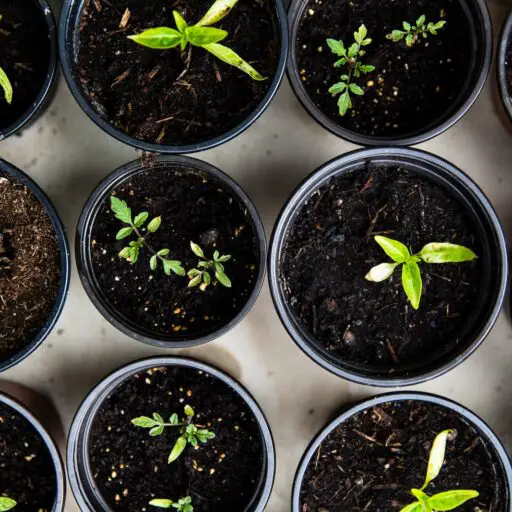Support our educational content for free when you purchase through links on our site. Learn more
Quick Answer: Community gardens improve air quality by reducing air pollution, absorbing carbon dioxide, and releasing oxygen. They also create green spaces that help filter out harmful pollutants and provide habitat for beneficial insects and birds. Additionally, community gardens promote sustainable practices that reduce the use of harmful chemicals and pesticides, further contributing to cleaner air.
Have you ever wondered how community gardens can make a positive impact on the environment? Beyond providing fresh produce and fostering a sense of community, community gardens play a crucial role in improving air quality. In this article, we’ll explore the various ways in which community gardens contribute to cleaner air and a healthier environment. So, grab your gardening gloves and let’s dive in!
Table of Contents
- Quick Answer
- Quick Tips and Facts
- Background: The Role of Community Gardens
- How Community Gardens Improve Air Quality
- FAQ
- Conclusion
- Recommended Links
- Reference Links
Quick Tips and Facts
- Community gardens improve air quality by reducing air pollution, absorbing carbon dioxide, and releasing oxygen.
- These gardens act as natural filters, helping to remove harmful pollutants from the air.
- The presence of plants in community gardens helps to create a healthier and more sustainable environment.
- Community gardens provide habitat for beneficial insects and birds, which contribute to a balanced ecosystem.
- By promoting sustainable practices, community gardens reduce the use of harmful chemicals and pesticides, further improving air quality.
Background: The Role of Community Gardens

Community gardens have been around for centuries, serving as spaces where individuals come together to grow their own food, connect with nature, and build a sense of community. These gardens are typically located in urban areas where access to green spaces may be limited. They provide a valuable opportunity for people to engage in gardening, even if they don’t have access to their own yard or garden.
In recent years, community gardens have gained recognition for their positive impact on the environment. They offer numerous benefits, including improving air quality, conserving water, promoting biodiversity, and enhancing mental well-being. By understanding how community gardens contribute to cleaner air, we can appreciate their role in creating healthier environments for everyone.
How Community Gardens Improve Air Quality
1. Reducing Air Pollution
✅ Community gardens play a vital role in reducing air pollution in urban areas. Urban environments are often plagued by high levels of air pollution due to factors such as vehicle emissions, industrial activities, and the burning of fossil fuels. These pollutants can have detrimental effects on human health and the environment.
✅ By creating green spaces within urban areas, community gardens help to mitigate air pollution. The plants in these gardens act as natural air filters, absorbing pollutants such as carbon monoxide, ozone, and sulfur dioxide. They also trap dust particles, reducing their presence in the air.
✅ The presence of vegetation in community gardens helps to create a barrier between the sources of pollution and the surrounding areas. This helps to reduce the exposure of nearby residents to harmful pollutants, improving the overall air quality in the vicinity.
2. Absorbing Carbon Dioxide and Releasing Oxygen
✅ One of the key ways in which community gardens improve air quality is through the process of photosynthesis. Plants absorb carbon dioxide from the atmosphere and convert it into oxygen through photosynthesis. This process helps to reduce the levels of carbon dioxide, a greenhouse gas, in the air.
✅ By absorbing carbon dioxide and releasing oxygen, community gardens contribute to the overall reduction of greenhouse gas emissions. This is particularly important in urban areas, where high levels of carbon dioxide can contribute to the heat island effect and climate change.
✅ The more plants there are in a community garden, the greater the amount of carbon dioxide that can be absorbed and converted into oxygen. This makes community gardens an effective way to combat climate change and improve air quality.
3. Filtering Harmful Pollutants
✅ In addition to absorbing carbon dioxide, community gardens also help to filter out other harmful pollutants from the air. Plants have the ability to trap and remove pollutants such as volatile organic compounds (VOCs) and particulate matter.
✅ VOCs are chemicals that can be found in various household products, including cleaning agents, paints, and pesticides. These chemicals can contribute to poor indoor air quality and have adverse health effects. Community gardens act as natural air purifiers, helping to remove VOCs from the air and create a healthier environment.
✅ Particulate matter refers to tiny particles suspended in the air, such as dust, pollen, and smoke. These particles can cause respiratory problems and other health issues when inhaled. The presence of plants in community gardens helps to filter out these particles, reducing their concentration in the air and improving air quality.
4. Providing Habitat for Beneficial Insects and Birds
✅ Community gardens not only benefit humans but also provide habitat for beneficial insects and birds. These creatures play a crucial role in maintaining a balanced ecosystem and contribute to the overall health of the environment.
✅ Insects such as bees, butterflies, and ladybugs are important pollinators. They help to fertilize plants, ensuring their reproduction and the production of fruits and seeds. By providing a habitat for these insects, community gardens support the pollination process and promote biodiversity.
✅ Birds are also attracted to community gardens, as they provide a source of food and shelter. Birds help to control pest populations by feeding on insects that may damage plants. Their presence in community gardens contributes to a healthier and more sustainable environment.
5. Promoting Sustainable Practices
✅ Community gardens promote sustainable practices that contribute to cleaner air. These gardens often prioritize organic gardening methods, which minimize the use of harmful chemicals and pesticides. By avoiding the use of synthetic fertilizers and pesticides, community gardeners help to reduce air pollution and protect the environment.
✅ Additionally, community gardens often encourage composting and recycling practices. Composting organic waste helps to reduce the amount of waste that ends up in landfills, reducing greenhouse gas emissions. Recycling materials such as plastic containers and cardboard helps to conserve resources and minimize pollution associated with the production of new materials.
✅ By adopting sustainable practices, community gardens serve as examples of environmentally friendly gardening methods. They inspire individuals to make conscious choices that contribute to cleaner air and a healthier planet.
FAQ

How can community gardens improve health?
Community gardens improve health in various ways. They provide access to fresh, nutritious produce, promoting a healthy diet. Engaging in gardening activities also offers physical exercise, which is beneficial for overall well-being. Additionally, community gardens create opportunities for social interaction and a sense of belonging, which can positively impact mental health.
Read more about “Gardening and Mental Health Statistics … 🌱”
How do community gardens help climate change?
Community gardens help combat climate change by reducing greenhouse gas emissions. Through photosynthesis, plants in community gardens absorb carbon dioxide and release oxygen, contributing to the overall reduction of greenhouse gases in the atmosphere. Additionally, community gardens promote sustainable practices that minimize the use of resources and reduce carbon footprints.
Read more about “How do community gardens help climate change?”
How do gardens benefit the environment?
Gardens benefit the environment in numerous ways. They improve air quality by absorbing carbon dioxide and filtering out pollutants. Gardens also promote biodiversity by providing habitat for beneficial insects and birds. Additionally, gardens help to conserve water by reducing runoff and soil erosion. Overall, gardens contribute to a healthier and more sustainable environment.
Read more about “How does gardening reduce your carbon footprint? … 🌱”
How to improve air quality in a yard?
To improve air quality in your yard, consider planting a variety of trees, shrubs, and flowers. These plants will help to absorb carbon dioxide and filter out pollutants from the air. Avoid the use of harmful chemicals and pesticides, as they can contribute to air pollution. Instead, opt for organic gardening methods and sustainable practices. Regularly maintain and care for your plants to ensure their optimal health and air-purifying capabilities.
Read more about “17 Creative Ways to Make Money From Your Large Garden … 🌱💰”
Conclusion

In conclusion, community gardens play a crucial role in improving air quality and creating healthier environments. They reduce air pollution, absorb carbon dioxide, filter harmful pollutants, provide habitat for beneficial insects and birds, and promote sustainable practices. By engaging in community gardening, you can contribute to cleaner air and a more sustainable future. So, why not join a community garden near you and start making a positive impact on the environment today?
Remember, the benefits of community gardens extend beyond air quality. If you’re interested in learning more about the benefits of community gardens, community garden events, community garden policies, gardening for beginners, or garden design ideas, check out the following articles on Community Gardening™:
- Benefits of Community Gardens
- Community Garden Events
- Community Garden Policies
- Gardening for Beginners
- Garden Design Ideas
For more information on the benefits of gardening for the environment, check out our article on Benefits of Gardening for the Environment 2024.
Recommended Links
- 👉 CHECK PRICE on: Amazon | Walmart | Etsy
- 👉 Shop Community Gardening™ on: Amazon | Walmart | Etsy
- 👉 Shop Roger’s Gardens on: Roger’s Gardens Official Website

